THIS MONTH’S PRAYER GUIDE: Praying God’s Word for Your Blended Family.
With over 1300 new step families forming in the US every day, it’s safe to say that each of us has the opportunities to minister to and support a blended family. Or maybe you are a blended family, looking for insight and a way to ensure the transition goes as smoothly as possible. You’re in the right place.
On today’s episode, I’ve invited Ron Deal, founder of Smart Stepfamilies, to give us a broad spectrum look at the challenges blended families face. We’ll answer questions like:
- How the Church sees the blended family in 2023.
- How to “cook” a step family.
- What relationships to prioritize when blending a family.
And Ron shares specific, heart-felt encouragement for any parent who feels like they’ve failed, and hope for how to move forward with confidence.
Don’t miss this important episode. Even if you aren’t a blended family, you know one. Take the time to understand them better when you tune in now!
To read today’s episode scroll down to the end of this post.
Today’s show is brought to you by our newest prayer guide, Praying God’s Word for Your Blended Family.
Links mentioned in this episode:
This post contains affiliate links. When you purchase through this link, you help support Million Praying Moms at no extra cost to you. Thank you!
How to Pray God’s Word for Your Children
Praying God’s Word for Your Blended Family
Preparing to Blend: The Couple’s Guide to Becoming a Smart Stepfamily
Subscribe & Review in iTunes
Have you subscribed to the Million Praying Moms Podcast? If not, why don’t we fix that right away! We don’t want you to miss even one! Click here to get that taken care of!
And if you’re feeling extra special generous, we would be so grateful if you took the time to leave a brief review. These help other people find the Million Praying Moms Podcast (and they encourage us to keep going)! Just click here to review, select “Ratings and Reviews” and “Write a Review” and then let us know what you love about the podcast! Thank you!
Read Today’s Podcast Episode
Brooke
Well, Ron, welcome to the show. I’m so glad to have you here for the very first time. And I would love it if you would tell everyone a little bit about you, your ministry, and what you’re called to do.
Ron Deal
Well, Brooke, thank you. First of all, it’s an honor to be on your podcast. I appreciate the invitation. So I work with the Ministry of Family Life. We’re a nonprofit, very large marriage and family ministry, been around for 45 plus years. We do marriage and family education for couples curriculum, for church materials, online national radio broadcast called family life today as well as a number of podcasts one of which I do called family life blended. That’s the name of the department that I run for family life we specialize in working with blended family step families and this is something I’ve been involved in now for over 30 years.
I got my start in youth ministry and working in a local church and then decided I didn’t know enough about the family to understand their kids. And so I got a degree in marriage and family therapy and started working not just as a clinician, but as somebody who was very interested in preventing problems, working with relationships within the local church. And so as a part of doing marriage and family ministry, started working with blended families and that’s been over 30 years ago now. And so I’ve specialized in this space for quite some time. We have nine books that we’ve published, a curriculum that’s used around the world. And like I said, the Family Life Blended podcast, we do events for couples and churches. We train leaders, you know, on and on. We work, I mean, we’re the largest blended family ministry in the world. And what we’re really trying to do is raise awareness and activate the local church to help love on families.
Brooke
I love that so much because I think there’s actually my first question to you in just a second is going to touch on the church and the sometimes misunderstandings or difficulties that there can be for blended families there. But before I go into that, I just want to say I actually had the privilege of being on the Family Life Today radio show myself several years ago and it was one of the, it was one of the best experiences I’ve had. Really just a tremendous ministry, I think so highly of all the work that you guys are doing. And I’m thrilled that we get to host you here today because I really believe you know what you’re talking about and I really believe that you can help blended families. So my first question for you though, before we get into the church is what makes this particular topic so important to you personally, just on a personal level?
Ron Deal
Well, you know, it’s interesting. A lot of people get into specialized areas of ministry out of personal pain, you know. People work in addiction ministry because they had an addiction at some point in their lifetime or divorce recovery ministry because they went through a divorce at some point. That is not my story. I didn’t grow up in a blended family. My wife’s not part of a blended family. We don’t have a blended family. Nan is my first wife. We’ve been married for 37 years. It’s not our story, but I’ve always had a heart for people who find themselves in challenging family circumstances. It started as a youth pastor, where I’m dealing with kids who are coming from homes where their parents are, you know, struggling in their marriage, or maybe their parents are divorced or a parent dies and a kid’s now in a single parent home. Major transitions for these children, that affects their life emotionally, mentally, and their spiritual development. And so I’ve always had a heart for this. And what I stumbled into when I became a clinician was how to help single parents and blended families. It’s not a foreign thing. It’s not terribly difficult. We just have to try.
And honestly, even today, 30 years later, I find it difficult to help churches try. It seems to be space that we’re uncomfortable in for a few reasons. Part of it is we just don’t realize there’s something unique or different about step family living. So let me just sum it up by saying this way. It’s as different as life before a pandemic and life in a pandemic. Now everybody listening right now just went, I know exactly what you’re talking about. Life changed in a heartbeat. And we went from being footloose and fancy free to wearing masks and stuck in our house, not knowing what tomorrow holds and how to navigate this new terrain. Well, that’s sort of what Step Family Living is. It’s a major transition that has structural and emotional confines to it that you’re unsure how to navigate or how to work through as a parent as a couple and so you find yourself withdrawing getting isolated not sure what to do people give you this answer and that answer and the experts seem to disagree the medical professionals disagree and you don’t really know what to do it’s filled with ambiguity and loss, now what? But you know what? If you stick with it, you can get through a pandemic. You know, here we are sort of on the other side. I mean, I know we’re not entirely out of it, but we’re in a much better place. And the same thing happens with step families. We can help them navigate some difficult terrain and come through on the other side stronger and healthier. We do not have to just say good luck with that.
Brooke
Right, I love that. And if the families who are blended themselves are struggling with all the things that you just listed right there, it’s no wonder if they don’t have it figured out, it’s no wonder that the church doesn’t have it figured out and that we don’t know how to come alongside them effectively and help them through this. So early, let’s just talk about the church. Let’s just dive in there. Early in your book, you address some of the common issues that blended families face in the church. And I do have a personal story. I did not come from a blended family, but my father was a child of divorce. My grandmother was abandoned by my grandfather. He was an alcoholic and a womanizer, and he left her to raise three boys alone. And it was an extremely, yeah, it was an, it was in a time when was really looked at very differently than it is today. And my grandmother always took her children to church and she was a woman of faith. But in that period of our history, sadly, she never really felt welcome in the church herself. And so later in life, I know because she did it with me, she would attend some at various churches with her grandchildren. She would come if I sang in church or if I was in a Christmas play or you know things like that and I know her to have been a woman of faith but she always felt unwelcome in the church because of everything that she had been through. So this topic while I don’t have specific experience with a blended family I do feel some of the pain that some of them might go through in the church and I would love to know what you would say to the blended couple listening today who might be having some of those same challenges or challenges in the same family, if you will, from the church.
Ron Deal
Not everybody feels spiritually marginalized like your grandmother did, but many do. It is a common theme that I’ve heard over and over again through the years. I do think sometimes people feel marginalized by their church when it’s not that the church looks at them like you’ve got a scarlet A on your clothes and you know you’re an outcast. But we don’t necessarily as a church body know how to respond. Somebody listening right now is going, I don’t know what they’re talking about. I’ve got a friend. She just married a guy. He’s got two kids. She’s a stepmom. So what? Well, see that so what was where you can step in and be an encouragement to your friend because that so what is baffling to your friend. How do I be a stepmother? Maybe she has biological children of her own. So she knows exactly what it is to be a mom.
But being a stepmom is unruly and unpredictable. And wow, I have no authority at all. And it seems like my husband and I don’t agree on how to parent his kids. And then his ex-wife calls, and she all of a sudden dominates our home just by her attitude or her schedule or her whatever. And so there’s this outside influence that I don’t even know how to deal with. That’s the so what you can encourage somebody about. But if you sort of say, oh no, there’s nothing different about being a stepmother than being a biological mom. Then you inadvertently alienate your friend from your support, from your encouragement, from you coming alongside and saying, wow, let me tell me about that. And let’s figure it out together. Let’s pray about that together. When friends do that, the church all of a sudden comes around families. When a pastor does that, the church comes around families.
So sometimes it’s a lack of awareness. Now let me speak to the issue your grandmother faced. Because that comes down to a spiritual judgment about what has happened in somebody’s life. And it’s not uncommon, I hate to say this, we’re really bad at shooting our wounded in the church. You know, so your grandmother didn’t make any of those choices and yet she was treated as if she did.
There was a time in an era where that was sort of the predominant response from people within the church. You got alienated because you were divorced, even if it wasn’t even your fault or choice or you weren’t a part of that. Now I think that happens less in many churches, but there are some places where people are treated as if they’re a scarlet letter. I would encourage all of us to look hard at the life of Jesus. Jesus did not…fudge on truth. He was very clear. The story of the woman in the well in John 4 is a good example. He actually used her life to get her attention, but he didn’t use the background of her story to make her feel shame or less than. He used that so he could capture her attention and point then to living water, point to hope, point to mercy.
The bigger story, the bigger narrative is yes, sometimes people sin and it brings consequence to their world. And we should not avoid that consequence or the reality of that sin. But we don’t do it to make them feel bad. We don’t do it to say to somebody else standing around, see, you don’t want that to be you. That’s manipulative. That’s based in fear. No, no, no. The response of Jesus is one of mercy. Yes, he was strong on truth, but he was heavy on mercy.
And that’s the thing that I want all of us to consider. Move toward people who find themselves in situations that were of their own doing or not of their own doing. But either way they need help. Move toward them. Don’t move away from them. Broke a quick little Hebrew lesson. You know the word, the word in the Old Testament that’s translated life literally carries the idea in Hebrew of moving toward somebody. You’re moving
When you’re alive, you’re moving, something’s happening. And if you speak life into somebody’s world, you’re moving toward them. The word for death means to stop moving. It literally means to dam up resources that could bring life to somebody’s world. When you move away from somebody in judgment, you’re bringing a little death to them. When you move toward them in love and in compassion and with mercy, you’re bringing life to them.
Brooke
Amen. That is so good. Such a great picture and so simple really to understand what we’re doing. I love that. What are the statistics in the church right now? Like how many, you know, one in how many families are we dealing with that are going through these struggles?
Ron Deal
We actually have a guess, because nobody’s really done the science, so I don’t really know what the right answer is, but I think an easy, an easy estimate is at least a third of families within the family. Evangelical churches in general are blended families have step relationships somewhere in their three generations, grandparents, biological parents, middle generation if you will, or the children. That may be a low estimate, it may be more like 40 percent, it depends on where people live. Sometimes I talk to pastors and they say, well in our church it’s half, you know, this is a very common narrative or story.
And so I think when people stop and think about that, all of a sudden you go, wow, if half of our people all of a sudden couldn’t see, we’d come up with Braille Bibles for everybody in a hurry. What are we doing to minister to people who find themselves living in a situation where they very rarely get any guidance or wisdom from the local church or from the Christian community? So there’s a ministry opportunity here. And that’s just in the church. If you broaden it to say, what about your community? What about the people who are not going to church anywhere? How many of them are living in blended families? Well, we know worldwide or, excuse me, across America, that 40 percent of all families are blended families. That’s that we know. Across the United States one out of three people man woman and child has a step relationship Either a step parent a step sibling or a stepchild One out of three that’s a hundred and thirteen million people This is not a small population. This is a significant group of people and we do have resources that can help now.
Brooke
That’s so encouraging. It’s eye-opening and it’s encouraging. I used to work, I worked for a very long time in crisis pregnancy ministry. And the statistics at that time, and this was a while ago, were one in four women had experienced the tragedy of an abortion. And for me, that number was in the church. And I remember thinking, it has stuck with me ever since I heard that statistic that no matter what group of people I’m in, one in four, one in four, it’s a huge number that have been impacted. And so to think about this from the perspective of a blended family, it is a huge number that has been impacted, who have been through the grief and loss for whatever reason of their maybe first or second family and now are trying to navigate their way through.
Ron Deal
Right? Sometimes I tell pastors, look, nobody in the secular world is really making a concerted effort to minister to blended family couples.
Brooke
And so you’re very right when you say that there is a tremendous opportunity for the church to come alongside and to minister Jesus, the hope of Jesus there. I’m so grateful that you shared that.
Ron Deal
In other words, they don’t have anywhere to go, secular or religious. So when we do it, we have a home for them. We just have an incredible ministry opportunity here. And so for somebody listening right now and you’re going, yeah, that’s my neighbor. I go to Bible study with a woman and yeah, this is their world. It’s not mine, but it is their. Well, two thoughts here. Number one, great. You now have more education and an opportunity to just step into the world and offer some encouragement, point into some resources, and who knows what kind of impact that can have. And the second thought here is, and this is a little sobering, Brooke, just keep living long enough, and you might have some blended family experience. In other words, there are so many people who, this is the way they find themselves in a blended family.
Mom and Dad were married for 40 years. Mom passed away and Dad, lo and behold, found another person he really loves and wants to get married at the age of 72. And guess what? You as a 35 or 45 year old person just became a stepchild and your children just became step grandchildren. And now when you go to Christmas and Thanksgiving, it’s a weird experience.
Ron Deal
You go in there and it’s not just dad’s house. It’s not mom and dad’s house anymore. It’s dad and his new wife’s house. And she changed the decor. And by the way, her children and grandchildren are coming to Thanksgiving too. So there’s 15 people at Thanksgiving. You’ve never met before in your life, but they’re now part of your family. That’s the newness. That’s the odd transition that people will find themselves in. And so it could be you not because of any sin doing on your part, but because life just has a way of turning corners that we didn’t necessarily choose. So again, this is a common life experience becoming increasingly common for lots of people.
Brooke
Yeah, that’s so good. All right, let’s get into some practical stuff now for the person that might be listening that needs to, you know, really needs help, really needs wisdom. What does it mean to cook a step family? That’s a term that I saw you use as I was reading some of your material. What does that mean? Tell us what that is.
Ron Deal
Good. Well, this is a metaphor I developed years ago and it’s in every book and every teaching and every video series we’ve done because it, for two reasons. One, it gives couples a vision, a way of thinking, a map really, a way of thinking about their family and how they’re going to come together and create harmony within the relationships. But it is also proven over time to be something that really sticks with people, gives them a sense of, oh I get it now, this is what we’re trying to do and this is what we’re not trying to do. And so it’s been very effective through the years. And so let me just in brief lay it out for you. If you were in the kitchen of your family’s heart, and you’re a blended family and you’re trying to figure out how to bring all the ingredients together and make something that’s really good to taste. How are you going to cook this family? Well, what people naturally do is take the blender approach, as I like to refer to it. We call them blended family, so why not put everybody in a blender? So all the ingredients of your husband, his kids, your children, and you grandparents, extended family, let’s just throw them all in the blender.
And all we have to do is turn that thing on for about 30 seconds. And what will happen is your last name and our last name will go away. It won’t matter anymore. The fact that you’ve lived here and for this length of time with these people and that past and went through this difficult transition in life, different than the one we went through, that’s all irrelevant now. We’re going to become the Brady Bunch. We’re going to pick the blended family of movies you want.
And we’re going to be harmonized really quickly. That is a setup for discouragement, disappointment, and real frustration. And here’s the irony, Brooke. If I’m sort of taking this blender approach to my family, and I just assume because I love this new wife or husband, therefore her children are going to be happy that I love their mother. That all of a sudden…Harmony is going to be the word of the day. What if that kid isn’t happy? What if that kid has some pushback? What if that child is somewhat disgruntled or troubled by some of the transition that’s taking place? And they’re just not excited about it. Now what do I do? Do I feel like I’ve failed? Do I work harder? Oh, that’s what I need to do. I need to blender harder. So you know what? You and I are going to go out on Saturday and we’re going to spend the whole day shopping together. And at the end of the day, you’re going to love me and you give that a try and that blender strategy doesn’t work as a matter of fact eight hours together turned into a disaster and now you’re further apart not closer you see the blender strategy creates conflict more often than not you had good intentions but it backfired on you it somebody’s going to get chopped up you know
Brooke
Right, and I’m just thinking of my blender. My kitchen blender has blades in it, you know? That doesn’t feel good. Somebody’s getting chopped and that’s not, that doesn’t seem like the right way to do this. So yeah, absolutely.
Ron Deal
So what we do is we teach people don’t blender instead you got to have a crock product approach. Crockpots work how? Slow. A lot of time with a little bit of heat. So we teach people what that looks like. In your home you want to have some slow steady heat. It’s not high heat like a friction on a blender. It’s not like an oven or a microwave that’s intense. It is slow and gradual and you add a lot of time.
And what happens to the ingredients in crock pots over an eight hour period of time? Well, they eventually they do three things. They warm up. They soften each ingredient, soft ketchup. Excuse me, ketchup, you know, potatoes and carrots and beef and celery. They all soften eventually. And then they start sharing of themselves. And that’s the beautiful thing about crock pots. You can create a genuine harmony between the ingredients. But each ingredient has to cook at its own pace and decide if and how and to what degree it’s going to share of itself. And then the harmony comes. You cannot force it. But you do need a little bit of heat. So you’re going to be intentional with that stepchild who’s not sure about you today. But you’re not going to spend eight hours on Saturday together and expect that that’s going to do miracles.
You’re gonna be slow and steady. The average step family, according to the best research we have, takes anywhere between five and seven years to find its harmony. Years. That’s like crockpots take hours. Families take years. But if you come in going in six months, we’re all gonna be happy, and then everybody’s not, and you’re like, okay, so what did we do wrong? Well, actually, no, you’re normal. Keep going. Just quit pushing so hard and you might actually find that you make more progress. That mentality shift, Brooke, is a life changer for so many people who just didn’t realize they had some assumptions they were working on and they were inadvertently making things worse instead of better.
Brooke
Well, and the beauty of the crock pot is that if you let it do its work, you get something, you get a new hole at the end that is better than the sum of its parts, right? It’s something juicier and better than any of those individual parts would have been had it not been for the heat and the time spent in the crock pot. So I love that.
Ron Deal
That’s right. That’s right. That’s right. And so the rea- yeah one of the little realities I just remind people of. So what this means is, you know, at year one and year three you’re not gonna be as merged together as you wish. There’s going to be some really good things happening in your home, but there might be one or two relationships that continue to be strained and difficult. Or there’s an outside influence that keeps jumping into your pot every other weekend. They come from a different pot where they live most of the time, but then they show up and they’re still not sure where they fit in this pot. Or maybe there’s a spice that keeps influencing in the form of a former spouse or an ex-mother-in-law who wants to see the grandkids all the time. You know those things are things you can’t control, you can manage, but they influence the overall, you know, merger of the ingredients. And so it is what it is and just recognize that it will take longer than you wish. But when you get there, it’s beautiful. Yeah.
Brooke
You in one of the books that I read, you talk about, you shared these words, I’m just going to read a direct quote and it really caught my attention. It says divorce doesn’t end family life, it reorganizes it. So let’s talk about specifically a step family that maybe comes from divorce. I have a family member who went through a difficult divorce, it was a long time ago now. And I remember saying to him after the divorce was final. He kept referring to himself as, I am divorced. I am divorced. And I said, you know, there’s gonna have to come a time when you stop referring to yourself as I am divorced. The divorce is something that you went through. It doesn’t define or describe who you are now. It’s a part of your story, but you don’t have to keep identifying yourself that way. What encouragement do you have for the mom or dad who might be listening right now? Who feels like there’s no redeeming their divorce. Like maybe they’ve failed their families and their communities and even failed God and they’re bringing that with them into this next, into this next family that they’re trying to build. How do you help them with that?
Ron Deal
Well, one of the things I love to do is just remind people of the narrative that God has always had with his people. Just go back and crack open your Bible and start doing a little tour of how messed up the great characters of scripture are.
You know, David’s a man after God’s own heart, but his household includes a premeditated murder to cover. We used to say an affair, but most scholars are now saying, you know what? That was sexual assault. He used his power, took advantage of Bathsheba. There was nothing consensual about it. So we got a sexual manipulation going on, only to have David, by the way, probably had at least 17 wives that we know of. Not one, 17. All right. He has multiple children by many of those that creates difficulties between them. One son replicates David’s sexual disgrace by raping one of his half-sisters, okay, and then has another half-brother hunt down that brother in revenge of the sister in killing. Now this is a guy that’s upheld throughout scripture as somebody who’s a faithful servant of God, but his household is not perfect. And we could go on and on with Abraham and Sarah. We could go on and on throughout the Old Testament. We could walk right into the New Testament and we could look at the different characters there. Like, the point is this. Not that we are able to earn God’s grace or, you know, achieve great things, but that He has loved us in spite of us. And that God’s narrative is that He takes our imperfect stories and wraps them into His redemptive story and then does great things through us for his purposes. When we rest in that space, two things happen. Number one, we’re grateful for grace. We really can rest in it. Number two, we’ll stop judging the neighbor. We’ll stop looking at somebody else going, boy, you’re just messed up and I don’t know what’s wrong with you. Well, you haven’t looked in the mirror long enough. That’s what I want to say. Like, just look in the mirror a whole lot longer than you’re looking at your neighbor. To your friend, I would say your identity is not a divorced person that doesn’t define you. It is your life. It is a consequence of life That will have ripples I often say, you know that initial great loss the death of a spouse or a divorce is an earthquake But then there’s tons of aftershocks that come on for years and years and years in your life and in your kids lives And those are things that we have to respond to as best we can
The aftershocks just continue and Brooke sometimes that makes somebody again feel bad about what has happened and Understandably, so you’re facing another consequence of some decision that you or somebody made ten years ago And look here’s another little aftershock, but that doesn’t define who you are You are still under God’s grace. You’re still a redeemed individual. There’s still hope for your life
And the beautiful thing that God does with imperfect people is that he does redeem the past. Not that cancels all the consequences, but that he does give us a new story. Literally a new name. In the case of this guy named Saul who was, you know, crucifying Christians because of their faith becomes this guy named Paul who writes most of the New Testament. Like, literally we get a new name.
And that’s where the hope is. So, yeah, consequences continue sometimes. But no, that doesn’t define who you are.
Brooke
That’s so good. It’s so good to be reminded of the grace that is ours. And, you know, as you were talking about David, I think so many of us love David, and I think it’s because we look like him in our lives. Look, we can relate to him in so many ways because we’re messed up too. Maybe not the exact same circumstances, but his life teaches us so much. But I was also thinking of just the genealogy of Christ and how…
There’s a prostitute and there’s all these women specifically who, if I were writing the genealogy of Christ, I might not have chosen to include people quote unquote like them. I would have thought maybe the genealogy of Christ needed to be a bit more pure, but it also is so encouraging to me that it’s not, because it tells me that if God can use those people. I know that he can do a work in me and I know that there’s no one that God cannot do or does not want to do or is not doing a work in this moment. So looking at grace is so important.
Ron Deal
It is, Brooke. I just have to tell you and your listeners a quick story that I missed for years in the Bible. In John chapter 4, I talked a little while ago about that Samaritan woman, Jesus meets at the well. She’s got a past. We don’t know the details of the past, but anyway you cut it, she is isolated and shunned by her community because of her past. So there’s something there. We don’t know what happened, but it’s a difficult situation. But I want to back up a little bit. The end of chapter three, John, who’s writing this story about Jesus, calls, he quotes, excuse me, he quotes John the Baptist. And John the Baptist refers to Jesus as the bridegroom. It’s the first reference we have where Jesus is called a bridegroom. Well, what do bridegrooms need? They need a bride. The next verse starts John 4 chapter 1, where Jesus had to go through Samaria, because he had to meet this woman who eventually is going to change her life and she’s going to become an evangelist for the Messiah, despite her background. But hold on to the story here.
Ron Deal
If you know what a sentence starter is, stay with me just for a second here. This is going to come together. If I were to say to you in a land far, far away, you would almost finish the story in your mind. You’re like, oh, I know this one. I know where this goes. That’s called a story starter. John 1 is a story starter. Jesus goes, a man goes to a well and he finds a woman. Every Jewish listener hearing that would go, I know this story. This is how Moses found his wife. This is how Jacob found his wife. This is how great people who are our fathers found their wives and there’s always a beautiful woman. It’s a magical moment and you know the rest is history. And so John starts that story and then says, but let me tell you about the woman. She’s not beautiful. She is a mess. She’s got a sordid past. Now everybody listening to that story, Brooke, would have said, oh no no. This is wrong. Bridegrooms don’t marry those kinds of brides.
You see that’s exactly the story John wants to tell you and me. We as imperfect people are exactly who Jesus came for. We are made perfect because of the bridegroom. We’re not acceptable as we are, but he makes us acceptable. If anybody listening right now who’s ever felt like, well you just are worthy of God’s grace. Well you are! That’s the good news. You fit in the story. The woman in John 4 is me. It’s you. It’s everybody listening to us right now. And that’s the point. That’s the point. Bridegrooms marry brides that they want to make beautiful.
Brooke
That is such a great way to look at that story. And it’s sobering and refreshing to have that reminder. I always, the part of that story that I love so much is that she then went off and told everyone, come see a man, come see a man, you know, just over and over again, and how our lives can demonstrate and influence all that brokenness that we had when Jesus, when we meet Jesus and he begins that restorative work in us, then our lives began not to point to the brokenness anymore, but began to point to the man who healed the brokenness. And I love that, I love that so much. Our lives can be used of God, our stories that will include that brokenness can be used of God to point to him. And that’s part of why he restores us and will restore us. We have the promise of that restoration because he does want to use our lives to point to him. So I love that. That’s one of my favorite stories. You didn’t know that, but that’s one of my very favorite stories in scripture. So thank you for sharing that. Another practical application that I wanted to touch on is that you make the argument that the new marriage, the new blended marriage needs to be the top priority.
And what you’re saying there is that the marriage needs to be the priority over the children. And I’ve actually seen this happen the other way around much more often. Parents are rightfully concerned about how this new family is going to impact, especially when their children are young. They’re concerned about how it’s going to impact their children, how their children are going to adjust to the new marriage and may focus more on their on the children’s health than on the health of the marriage. What would you say to this, to someone listening right now that is struggling in that way, how would you help them with that?
Get your copy of Praying God’s Word for Your Blended Family now.
Ron Deal
Okay, so let me just say this is a delicate balance we’re going for here. When we say the marriage is a priority, that is not to say that children are not a priority. I quickly point out to people, look in first marriage families, when mom and dad have a couple of kiddos running around and they’re small, mom and dad are spending a whole lot of time and energy investing in these children. That doesn’t mean you’ve lost your marriage, at least hopefully you haven’t, like we do encourage couples to go on dates and get away for a little bit with the kids. But then you’ve got to go back and, you know, pretty much 24-7, you are kid-centric for a certain season of your life. Okay, now, there’s still balance there, but what blended family couples don’t have is they don’t have that history of being a couple that preceded the children. They don’t have this longevity to their relationship. That’s a, the blended family marriage is a new relationship, whereas the parent-child relationships are longstanding and have DNA and background
You’re all they have, right? And so there’s something compelling about that makes parents sometimes side with their children to the demise of their marriage. That’s what we’re trying to say to people you can’t do. Really the answer here is not either your marriage or your children, it’s both and. Both your marriage and your children. But you have to work hard and with intentionality on behalf of the marriage or you can lose it to the kids’ demands, you can lose it to feeling guilty that your children have lost some more in this new family arrangement. And so you get filled with so much guilt and sympathy for your children that you end up giving your marriage away. That’s what we don’t want couples to do.
And so by bringing that to the surface and saying, hey, there’s a tension here, but be intentional at both parenting and marriage so that your marriage can help the family cook. Here’s the way, let me connect those conversations that we’ve been having, if you give your marriage away, you unplug the crock pot. There’s no more heat. There’s no more future. There’s no more direction. There’s no more unity in the marriage that helps provide for the children, that helps make a way for parenting to take place. Parenting’s gotta flow out of the marriage. So, make sure, make sure you give time and energy to getting your marriage where it needs to be.
Brooke
Yeah, I think in some ways that analogy isn’t or that priority isn’t a whole lot different in a in a marriage where in a first marriage than it is in a second marriage or third marriage because even as parents now, you know, my husband and I have been married for 21 years and we have one that just graduated from high school and another one right behind him.
We dated for four years before we got married. We have that whole history coming into our marriage that defines and unites us outside of our children. But even in first time marriages, the focus can become so child-centric that when the children leave the home, the relationship struggles because there’s not much left. It was built around the children. So it’s not that is necessarily a different priority in this family. It’s just that the circumstances are different. Some of the challenges are unique, but it’s exactly the same as really trying to hang on to your marriage in the midst of those child-raising years.
Ron Deal
Right. That’s exactly right. I’ll add one nuance there and say, and there’s additional challenges with blended family marriage. One key difference in a first marriage situation, the children have come from that marriage every all the children are in favor of mom and dad’s marriage. Everybody’s deeply invested in mom and dad remaining together.
In a blended family marriage, that may or may not be the case. Children are not necessarily fighting for the salvation of your marriage. If you’re, you know, in a tough spot as a couple, there may be one kid who’s literally like, hey, I can take or leave my stepdad, you know. You know, he’s a nice guy, but he’s not he’s not my dad. So they’re not necessarily with you in the same way that children from a biological family are with you. Those little nuances just add more challenge to the couple’s relationship. At the end of the day you’re exactly right you’ve got to manage both your marriage and your parenting situation uh and that’s true for couples in every family just different families have different nuances that go along with that.
Brooke
Yeah. Well, Ron, this has been so informative. I just really feel like the families that are listening right now have benefited so much. And I feel that I have been better educated as well just on how to recognize this ministry opportunity in the church and how to come alongside and give life instead of walking away and creating death. So thank you so much for being with us today, I’d like to ask you to do two things as we close. One, I’d like to ask you to say whatever it is you want to say in closing to the mom or dad who’s listening right now, who is struggling in their blended family. So if you would offer them some hope. And then after that, I’d love it if you could tell people how they can connect with you and get involved with what you’re doing for the kingdom, because this has been a great message and I know there’s gonna be people who want to learn more.
Ron Deal
Well, first of all, let me just say there are challenges and if you’re facing some of those in a step family situation and you’re trying to figure out how to navigate them, get a map. Let me tell you, we’ve invested in a lot of resources. You can read, you can watch, you can listen. Podcasts, video series, books, online articles, tons and tons of material that’s available that addresses a wide variety of step family configurations and situations and dilemmas. And so you don’t have to do this alone. We’ve actually got a ministry map where we’re connecting people to local churches that are doing blended family ministry. And that’s free for you to just access that and try to find somebody in your neck of the woods who could support you. So don’t feel like you have to go this alone. Get some help and reach out.
And your story of challenge is a very familiar story. Lots of people have expressed that. It’s a very common part of the journey. The good news is, sort of like Moses and the Israelites having to go through the Red Sea, you got to go through the hard sea in order to get to the promised land. And so stay with it, keep going, keep cooking, we would say, and find some maps that will help you navigate the terrain.
To that end, people can find me in two places. Familylife.com slash blended. That’s the Family Life Blended landing page. Familylife.com slash blended. That’s the ministry that I run day in and day out. My personal webpage is also available where my events are and lots of other little details about our various things that we can offer to churches. SmartStepFamilies.com. Either one of those two places, you’re gonna get tied into, like I said, resources in a variety of ways that you can access that will be helpful to you.
Brooke
Awesome. Thank you so much for being here. Don’t forget to get your copy of our new prayer guide, Praying God’s Word for Your Blended Family. You can find it and more about Lauren Gaines now in the show notes at millionprayingmoms.com. Till next time, friends, the Lord bless you and keep you and make his face shine upon you. Be gracious to you. May the Lord look with favor on you and give you peace.

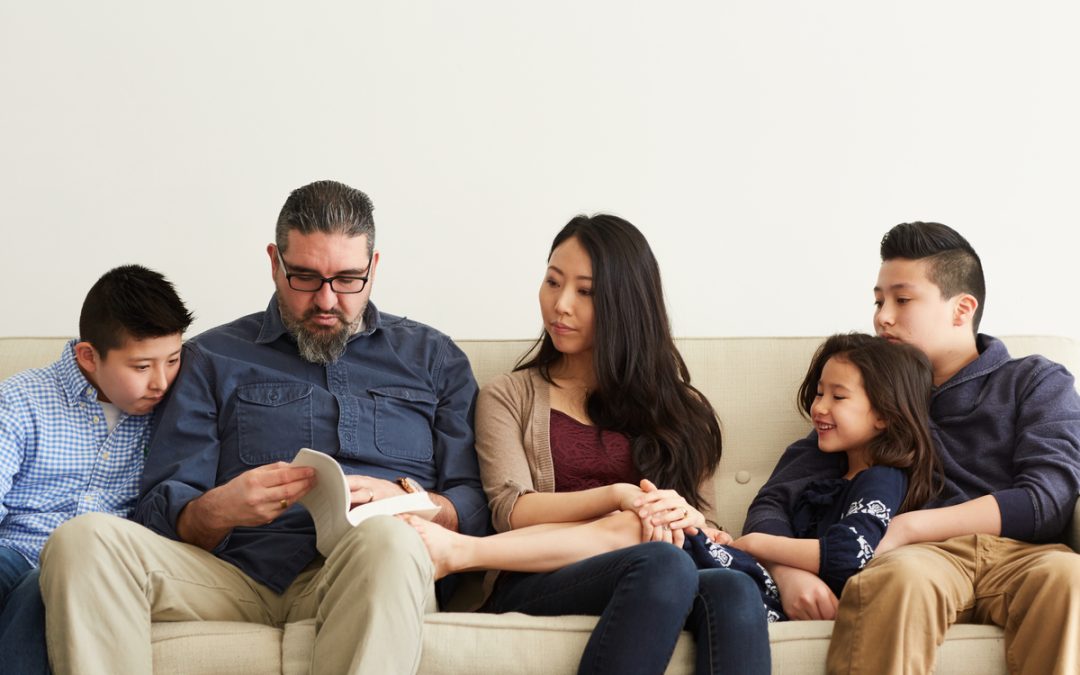

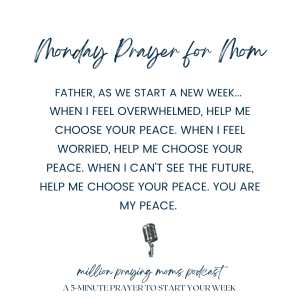
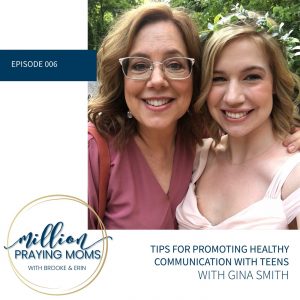

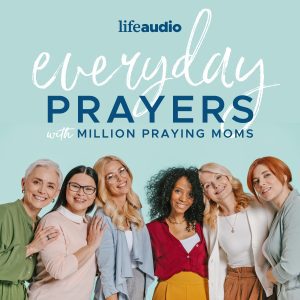
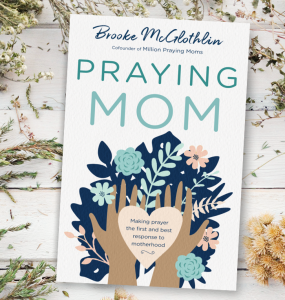
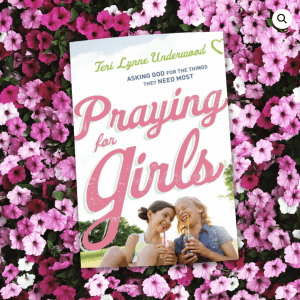
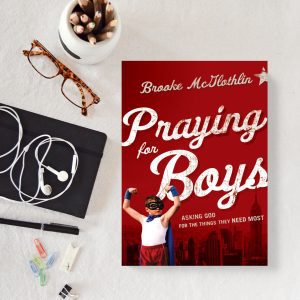
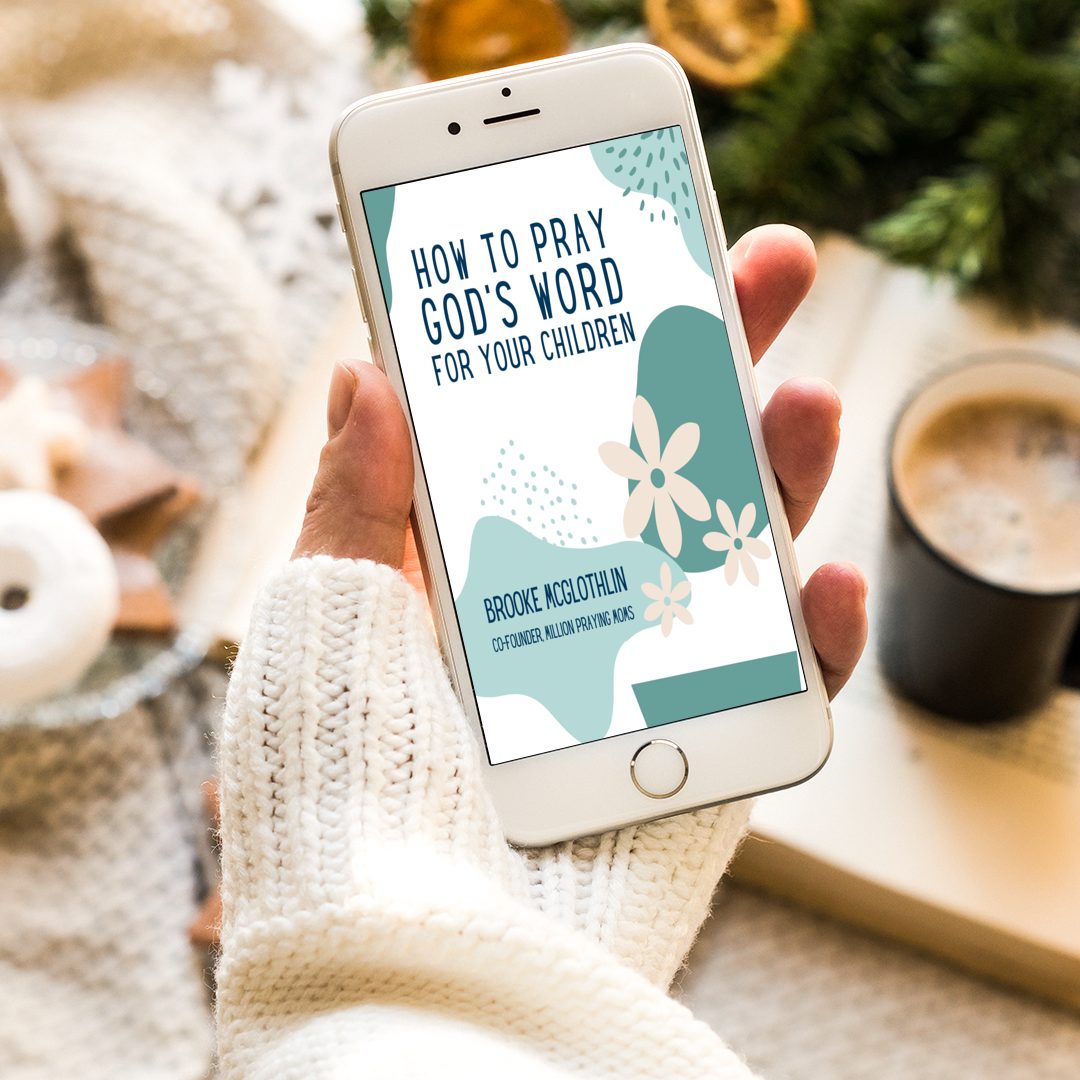
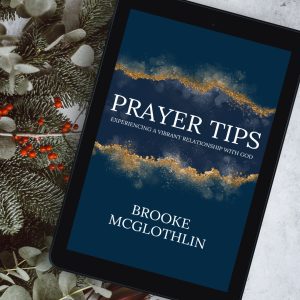
Loved it. This really helped me because i was ready to go in guns blazing. My sons baseball team seem very cliques but i didn’t know how to word it. Parents are not supportive and the coaches seem afraid to intercede when parents begin to verbally tear down another teammate. It was very disheartening to me.